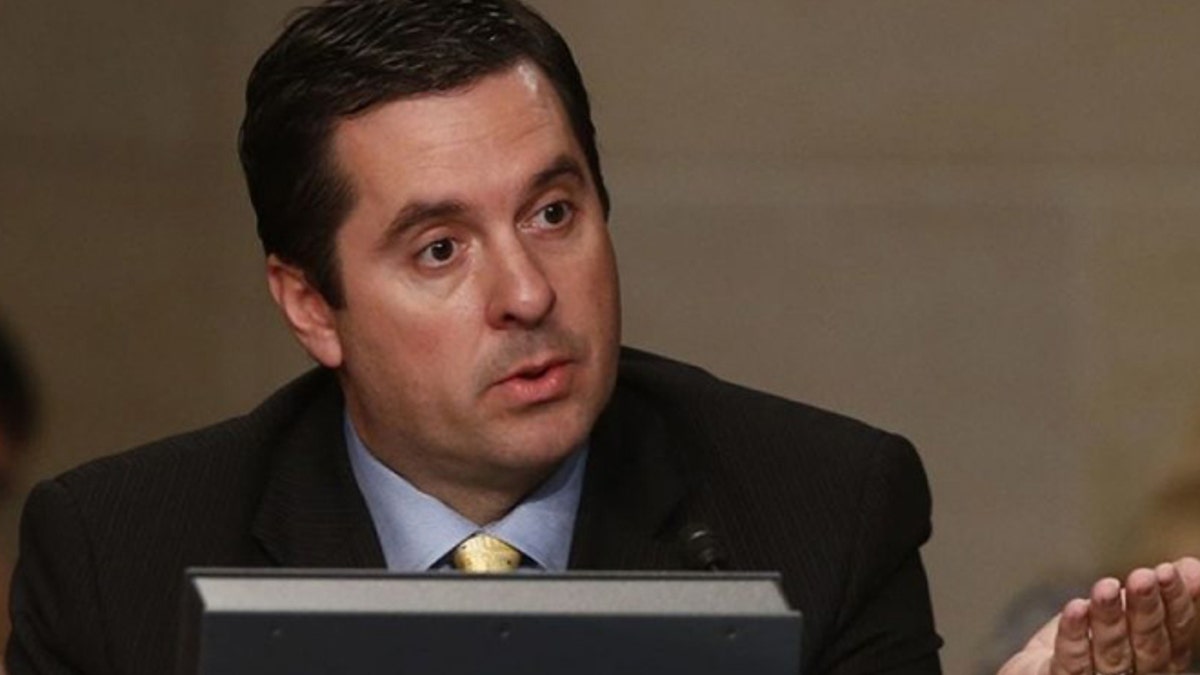
Rep. Devin Nunes, R-Calif., is shown. (AP Photo)
The Republican leadership of the House Intelligence Committee wants the FBI to do an assessment of recent media leaks that have revealed details of sensitive discussions involving key Trump administration officials.
"We are going to be outlining all of our concerns over the last 60 days that appear to all be related, maybe even coordinated in some ways," committee Chairman Devin Nunes, R-Calif., told Fox News. "I am going to be asking the FBI to do an assessment of this to tell us what's going on here because we cannot continue to have these leaks as a government."
The leaks include reported details from phone calls between President Donald Trump and the leaders of Australia and Mexico; from the intelligence community investigation into Russian interference in the U.S. presidential campaign; and most recently from conversations between National Security Adviser Mike Flynn and the Russian ambassador to the U.S.
The latter leak has created new pressures for the Trump White House, even raising questions about Flynn's future with the administration.
But the release of information from the Flynn phone calls also appears especially problematic, because when the intelligence community captures phone calls of an American inside the U.S., even if the discussion involves a foreign national (in this case an ambassador), steps must be taken to shield the American caller's identity.
"If [the conversation] was picked up inadvertently, then that would have had to been approved by someone in the last administration to actually unmask his name so that the FBI or intelligence officials knew who it was on the other end of the phone talking to the Russian ambassador," Nunes explained. "If in fact the press reports are right, someone made the decision to deliberately listen to General Flynn's phone calls and that is, I think, unprecedented, unwarranted, and flat-out wrong."
Former NSA analyst and whistleblower Bill Binney confirmed to Fox News that surveillance programs that touch on leadership are highly restricted.
"I think it is compartmentalized, meaning a small circle, less than 100 [people would have access to the intelligence]," Binney said. "They are supposed to minimize the American side. ... All presumed U.S. citizens have rights under the Fourth Amendment."
Nunes said the timing may be significant because the authorization to unmask Flynn was likely taken under the Obama administration, as the phone calls occurred in December. The committee chairman said the issue goes beyond politics because it is also undermining the relationship between a president and world leaders.
"I think all foreign leaders now are going to be worried that this is going to somehow leak out. I think it has done tremendous damage to [America's] reputation around the world, and no one's talking about it -- and this is because someone in the national security apparatus decided to leak this out. It's very, very serious," he said.
Simply revealing the contents of the calls can have the effect of what the intelligence community calls "burning the source," because the parties involved know beyond a doubt the U.S. government has the ability to track the conversations. The leaking of information about the investigation into Russian interference in the U.S. race points to the possible compromise of even more sensitive collection sources.
"If the shoe was on the other foot here and this was a Democrat, you can imagine Democrats in the House and the Senate would be going crazy - if this happened to someone within the Obama administration from one of our national security agencies," Nunes said.





















